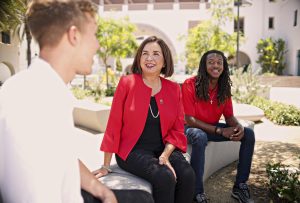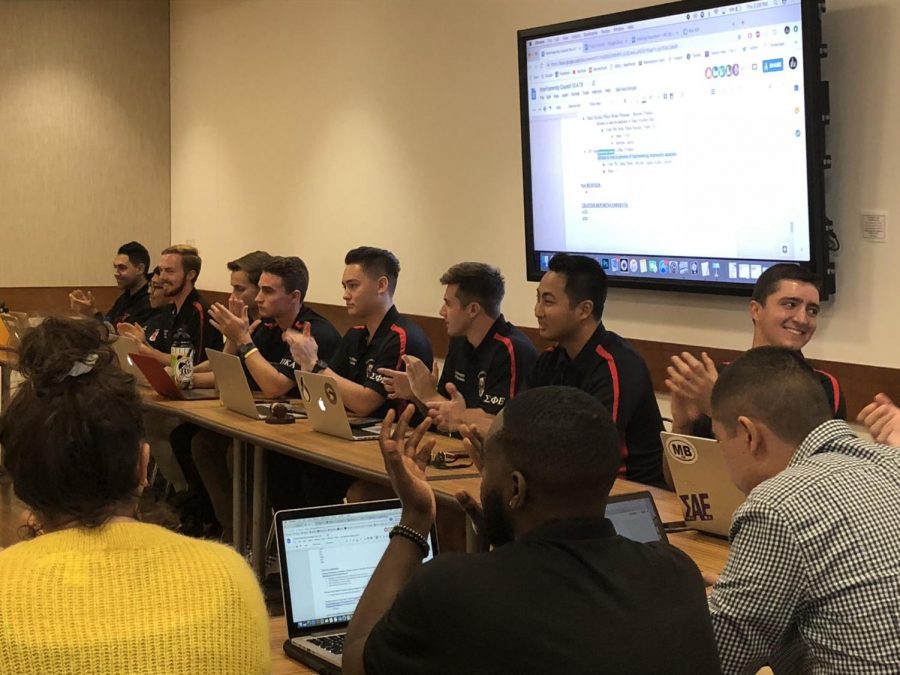The San Diego State Interfraternity Council voted unanimously to end the self-imposed social moratorium and to impose a hard alcohol ban during a meeting on Oct. 4.
The hard alcohol ban forbids any beverage with over 15 percent alcohol content from being served at an IFC event unless distributed by a third party vendor that checks identification, according to article XIV of the IFC’s bylaws.
The hard alcohol ban was set in place to prevent people from getting intoxicated too much or too quickly, IFC President Jacob Mahoney said.
According to article XIV of the IFC’s bylaws, there are three tiers of violation in the hard alcohol ban. The first offense is a fine of $300, the second offense is a fine of $600 and the third offense in a semester requires the IFC to have a meeting to discuss the need for the involvement of National Chapter officials or University officials.
Mahoney said he was surprised both the lift of the social moratorium ban and the hard alcohol ban was voted unanimously in favor of.
“It was really great to see that it was a unanimous vote to ban hard alcohol because that shows that the community has our back,” Mahoney said.
During the meeting, the IFC also voted to donate $2,500 to FratMANners, a program dedicated to educating fraternity men on negative environments and rape situations.
Business management senior, A.S. Executive Vice President and FratMANners President Nickolas Wohlman said he is hoping to use the money to organize an event for the IFC with a guest speaker regarding toxic masculinity.
“(Toxic masculinity) dissolves our community, it makes it a little more competitive than normal and it puts people’s egos on a pedestal,” Wohlman said. “No matter what our letters are, or what our values are, we are all working towards the same thing which is the common good and I think the social moratorium showed that.”
Wohlman said the IFC is working hard to ensure an event like the social moratorium, or party ban, never has to happen again.
The social moratorium was set in place by the IFC on March 9 after members of the IFC noticed the statistics of fraternities who were either suspended or on probation were similar to those of colleges like Ohio State and Florida State who had to pull their Greek system entirely, Wohlman said.
“We went on this moratorium because we believe that our council was not practicing the core values that sit under the IFC press,” IFC Executive Vice President Noah Siegal said.
During the moratorium, fraternity members were required to attend events on toxic masculinity, alcohol and other drugs, bystander intervention and sexual assault awareness. Mahoney said these events educated a total of 700 people.










